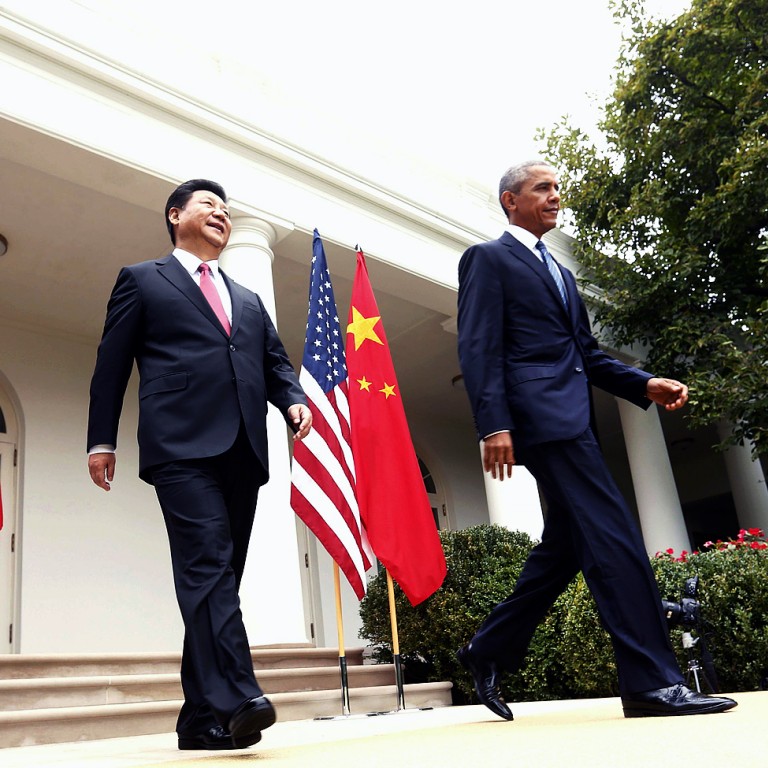
Xi and Obama agree on cybercrime cooperation meetings as threat of sanctions of alleged theft of trade secrets looms
Agreement between presidents takes discussion to higher level but analysts say substantial results needed to consider it a breakthrough
China and the United States have agreed to help each other out on investigations into cyberspying and theft, with senior security officials from both sides meeting regularly to assess progress.
After presidents Xi Jinping and Barack Obama met in Washington on Friday, the White House announced that the first of the meetings would be held later this year, to be followed by talks twice a year after that.
During a press conference by the two leaders, Xi said "China strongly opposes and combats the theft of commercial secrets and other kinds of hacking attacks".
The agreement comes amid mounting pressure on the Obama administration to impose economic sanctions on China for its alleged theft of trade secrets. Beijing has long accused Washington of being involved in the same activities, and suspended the only bilateral cybersecurity working group after the US indicted five People's Liberation Army officers for allegedly stealing trade secrets last year.
The presidents said both sides had agreed to cooperate with requests for information and help to investigate malicious cyberactivity from their territory.
"We have … made significant progress in agreeing to … how we are going to go after individuals or entities engaging in cybercrimes or cyberattacks," Obama said. "The question now is, are words followed by actions?"
The new ministerial talks will review the speed and quality of the assistance and will be at a higher level than before.
The previous working group, essentially run by the foreign ministries, "was not senior enough to reach agreement", James Andrew Lewis, director of the Strategic Technologies Programme at the Centre for Strategic and International Studies, wrote in an article on the centre's website.
"It would be a success for the countries to initiate a political-level negotiation," Lewis wrote.
READ MORE: From cybersecurity to South China Sea territorial disputes: 5 big challenges and outcomes in Sino-US relations
Beijing will designate a ministerial-level official to lead its delegation and the participants will come from the ministries of public security, state security and justice, as well as the State Internet and Information Office.
The US Secretary of Homeland Security and the US Attorney General will co-chair the talks, which will also involve the Federal Bureau of Investigation, the US intelligence community and other agencies.
But the US and China should hold off on any congratulations until the talks yielded something substantial, CSIS senior Asia adviser Bonnie Glaser said.
If Beijing followed through and took legal action on suspected hackers based on evidence supplied by the US, "that will be a breakthrough", Glaser said.
The agreement offers a basis "for a commitment that the US can try to hold China to move forward" Glaser said. "If they [Beijing] don't … there is a good chance that they will face sanctions from the Obama administration," she said.
But Richard Bejtlich, chief security strategist at the security company FireEye and a nonresident senior fellow at the Brookings Institution, said he did not expect Obama to impose sanctions during the rest of his term.
He said if Xi's comments at Friday's joint press conference were an honest reflection of his foreign and defence policies, Xi appeared to have made a "strategic shift".
"Rather than stealing commercial secrets from Western companies, I believe President Xi intends to pursue more joint ventures with foreign firms and also acquire foreign firms," Bejtlich said.
